Security is critical when exchanging messages between the server and client. Data protection can be achieved through several methods, including establishing an SSL-encrypted connection from a Delphi application to a remote MySQL server. MySQL supports data transfer over TCP/IP, both with or without SSL encryption.
You can establish a secure connection to a MySQL server using SecureBridge, a solution offered by Devart. It allows you to embed an SSL client into a Delphi or C++ Builder application.
This page demonstrates how to connect to MySQL with UniDAC using SSL as the encryption method.
Connect Using SecureBridge
To connect to MySQL using UniDAC and SecureBridge components, no external libraries are required. SecureBridge provides the necessary SSL functionality directly within the components.
Prerequisites:
- Install SecureBridge.
- Install the TCRSSLIOHandler component in RAD Studio to bind UniDAC with SecureBridge. For instructions, see
Readme.html—by default, it is located in C:\Users\<user>\Documents\Devart\UniDAC for RAD Studio XX\Demos\TechnologySpecific\SecureBridge.
- In RAD Studio, select File > New > Windows VCL Application - Delphi.
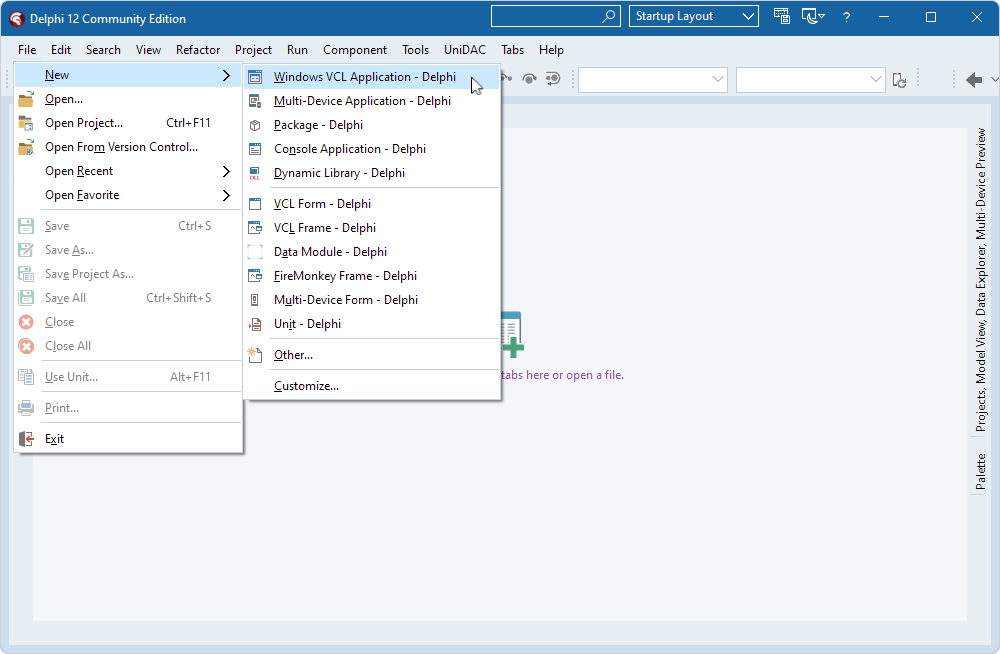
- Place the following components from the Palette on the form:
- TCRSSLIOHandler
- TMySQLUniProvider
- TUniConnection
- TUniQuery
- TDataSource
- TDBGrid
- TButton
These components are required to establish an SSL connection to a MySQL server using UniDAC, execute a query, and display the retrieved data in a grid.
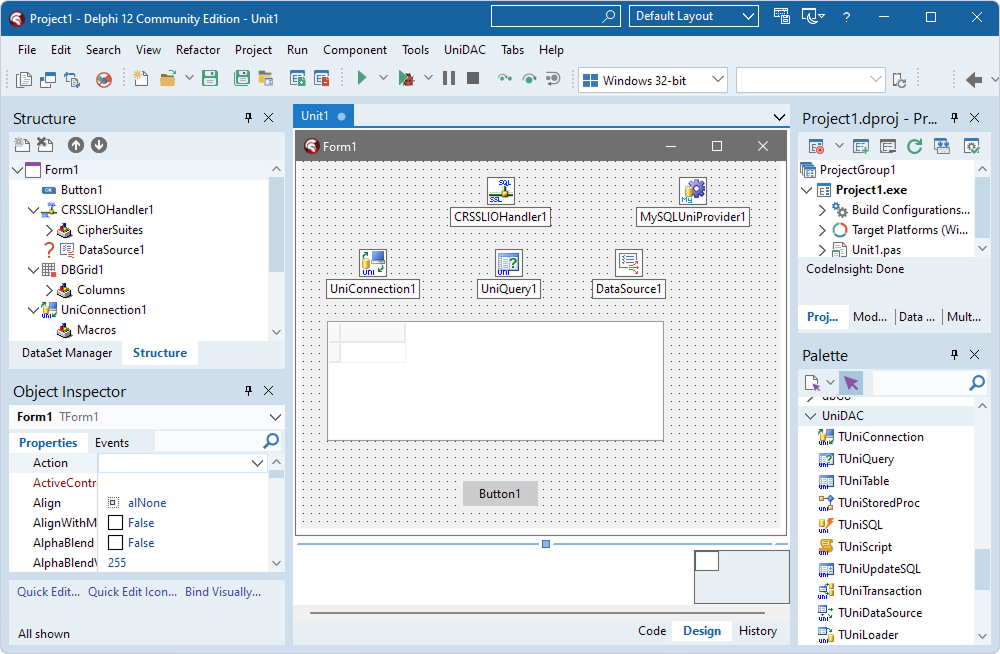
- Select the TUniConnection component and, in the Object Inspector, set the IOHandler property to the instance of TCRSSLIOHandler (CRSSLIOHandler1).
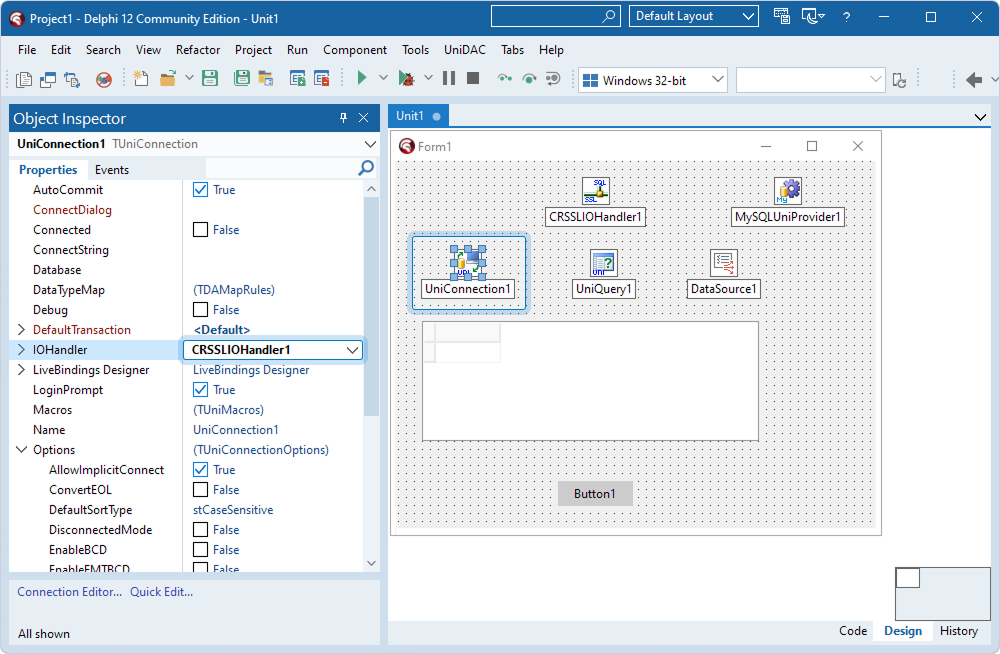
- Double-click the TUniConnection component and, on the Options tab, fill out the fields:
- Provider – Select MySQL.
- Protocol – Select mpSSL.
- SSLCACert – Specify the full path of the Certificate Authority certificate file.
- SSLCert – Specify the full path of the client certificate file.
- SSLKey – Specify the full path of the client private key file.

- On the Connect tab, fill out the fields:
- Provider – Select MySQL.
- Server – Enter the host name or IP address of the MySQL server.
- Port – Specify the MySQL server port.
- Username – Enter the username for the account on the MySQL server.
- Password – Enter the password for the account on the MySQL server.
- Database – Select the database.
- Click Connect to test the connection to the MySQL server, then click OK to close the dialog.
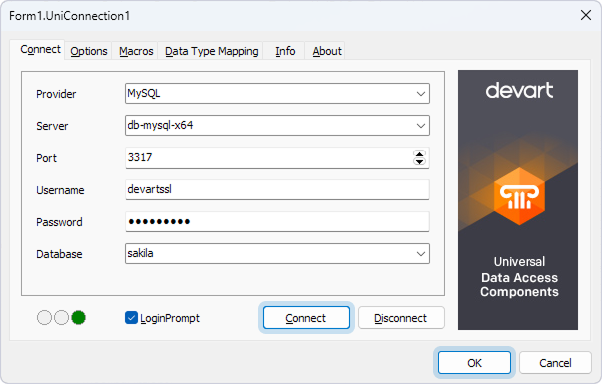
- Select the TDataSource component and set the DataSet property to the instance of TUniQuery (UniQuery1).
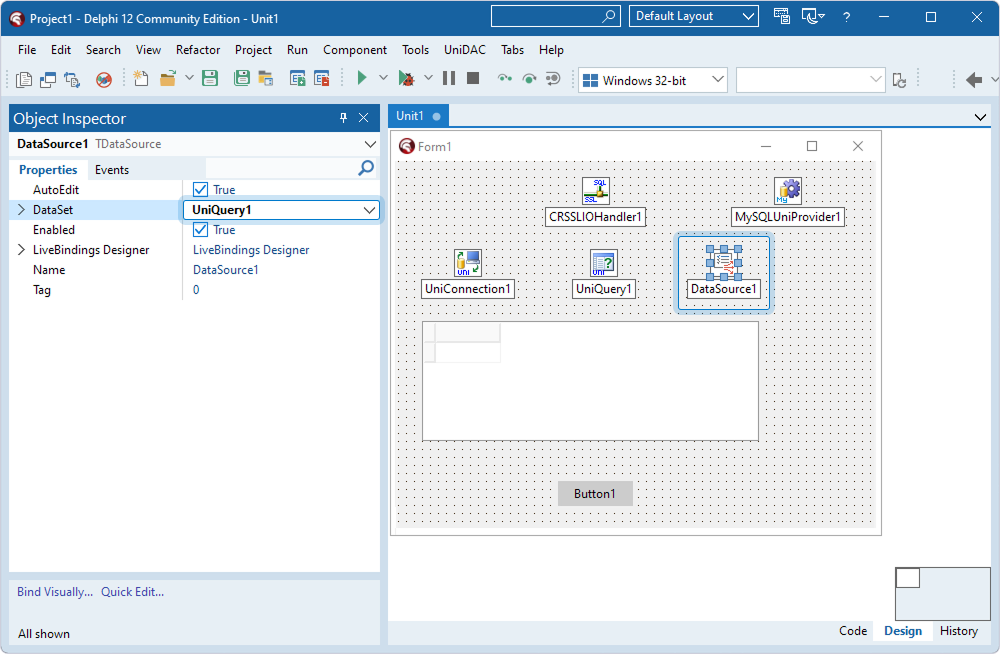
- Select the TDBGrid component and set the DataSource property to the instance of TDataSource (DataSource1).
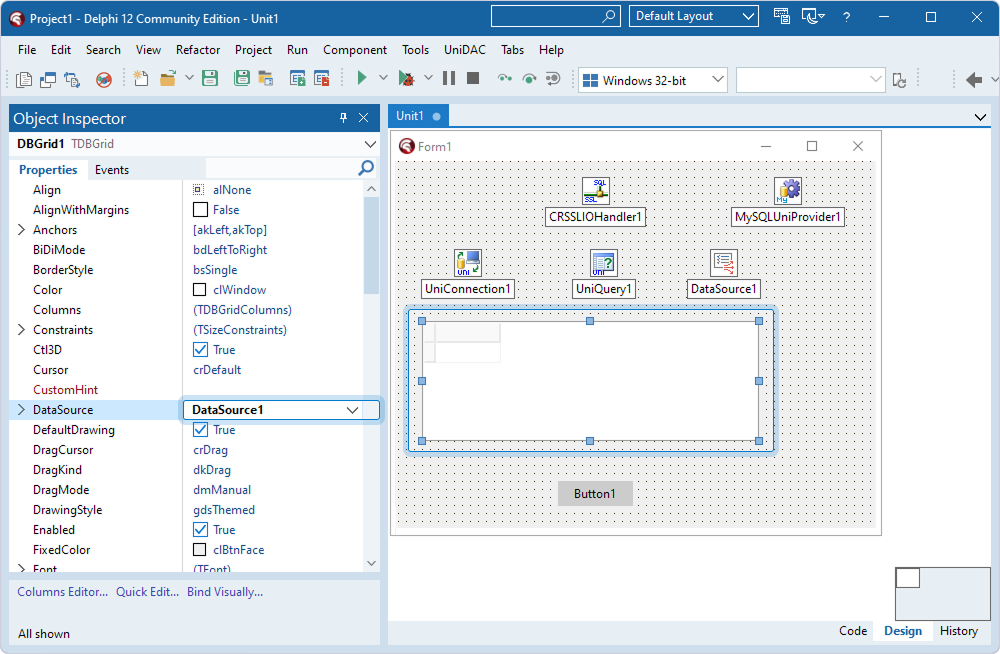
- Double-click the TUniQuery component, enter a SQL query to be run against the MySQL database, and then click OK.
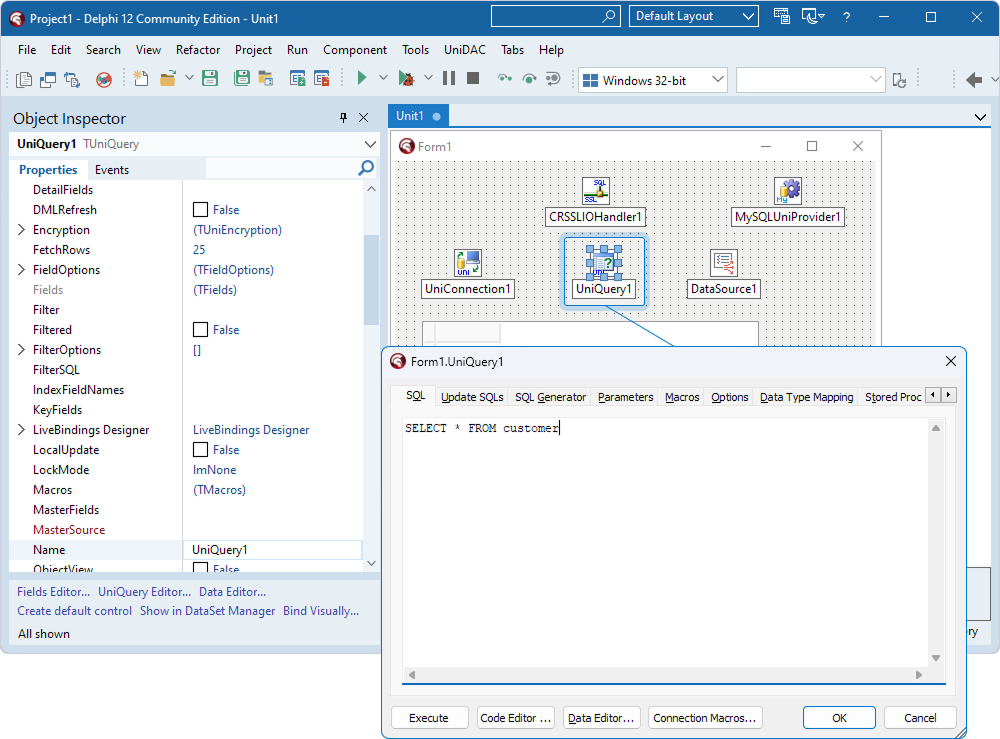
- Double-click the TButton component and add code to call the Open method on the UniQuery1 object to activate the dataset when the button is clicked.
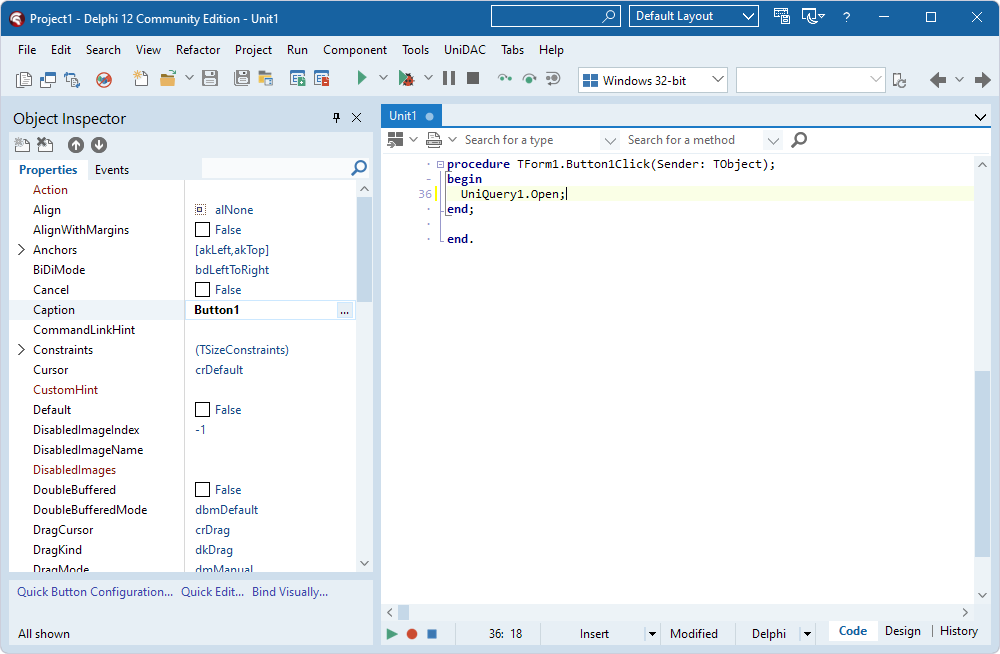
- Press F9 to compile and run the application.
- In the form that appears, click Button1 to run the query. Data appears in the grid.
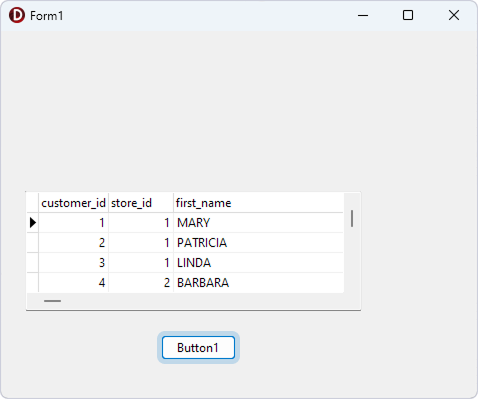
Connect Using the OpenSSL library
Another way to embed SSL client functionality into your Delphi app that uses UniDAC components to access MySQL is by using the OpenSSL library. The OpenSSL library implements the SSL protocol and enables servers to communicate with their clients securely.
Important: The authenticity of the CA certificate is not verified when you use the OpenSSL library. UniDAC supports only the basic OpenSSL functionality, which does not include CA certificate verification. To configure advanced SSL features such as CA certificate verification, use
SecureBridge components instead of OpenSSL.
To establish an SSL connection, set the following options:
SSLCACert – The full path of the Certificate Authority certificate file.SSLCert – The full path of the client certificate file. SSLKey – The full path of the client private key file.SSLCipherList – A list of allowed ciphers to use for SSL encryption.
Note: The ssleay32.dll and libeay32.dll files are required for using the SSL protocol with the OpenSSL library.











